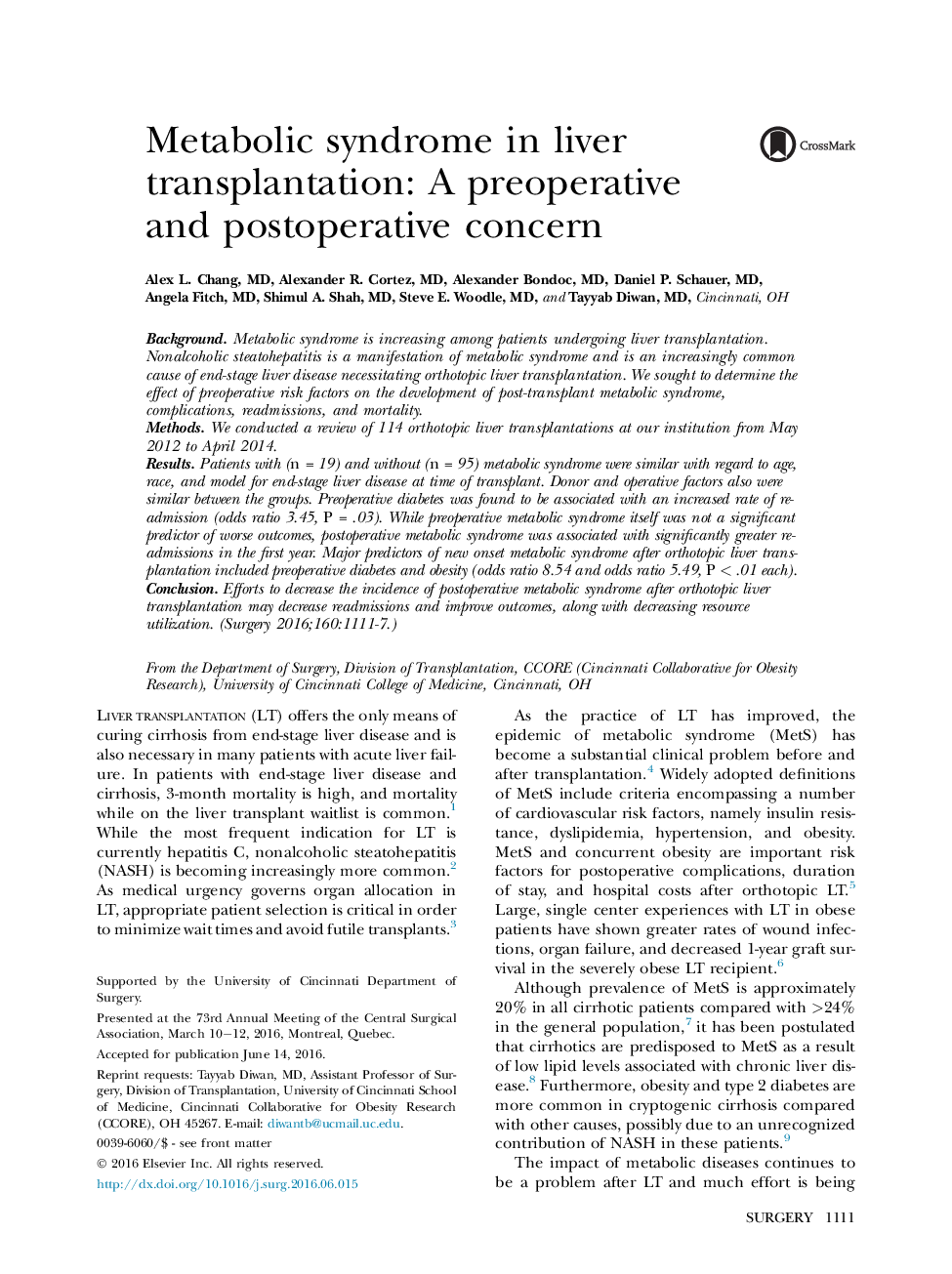| Article ID | Journal | Published Year | Pages | File Type |
|---|---|---|---|---|
| 4306388 | Surgery | 2016 | 7 Pages |
BackgroundMetabolic syndrome is increasing among patients undergoing liver transplantation. Nonalcoholic steatohepatitis is a manifestation of metabolic syndrome and is an increasingly common cause of end-stage liver disease necessitating orthotopic liver transplantation. We sought to determine the effect of preoperative risk factors on the development of post-transplant metabolic syndrome, complications, readmissions, and mortality.MethodsWe conducted a review of 114 orthotopic liver transplantations at our institution from May 2012 to April 2014.ResultsPatients with (n = 19) and without (n = 95) metabolic syndrome were similar with regard to age, race, and model for end-stage liver disease at time of transplant. Donor and operative factors also were similar between the groups. Preoperative diabetes was found to be associated with an increased rate of readmission (odds ratio 3.45, P = .03). While preoperative metabolic syndrome itself was not a significant predictor of worse outcomes, postoperative metabolic syndrome was associated with significantly greater readmissions in the first year. Major predictors of new onset metabolic syndrome after orthotopic liver transplantation included preoperative diabetes and obesity (odds ratio 8.54 and odds ratio 5.49, P < .01 each).ConclusionEfforts to decrease the incidence of postoperative metabolic syndrome after orthotopic liver transplantation may decrease readmissions and improve outcomes, along with decreasing resource utilization.
